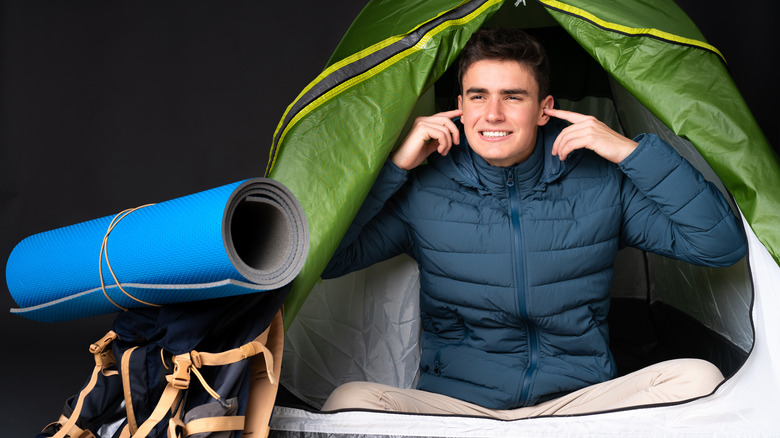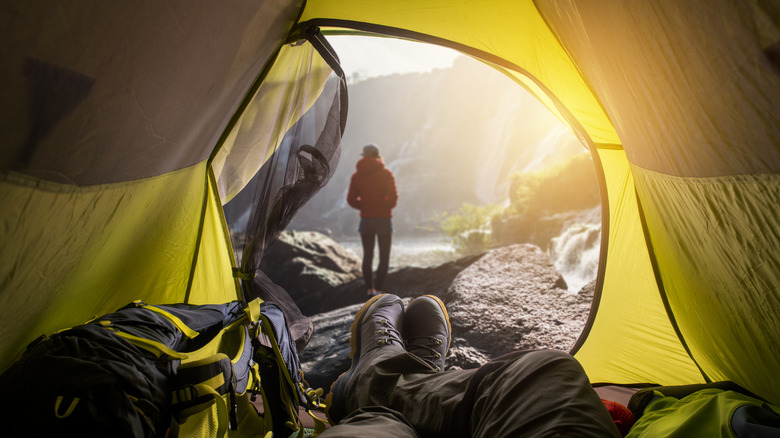Travel Guides Outdoor Adventures Camping
Caitlyn Knuth
Getting out into nature is something many travelers look forward to. Camping is a particularly popular option for those who are looking to spend quality time with family and friends far from the hustle of life while also connecting with nature. Camping comes with opportunities to pair adventure with relaxation and make the most of fantastic views, too. It offers a chance to learn new skills, ranging from setting up tents and tying knots to getting campfires roaring in no time.
Whether it’s the fun of (safely) building a campfire and making s’mores that call you to a campsite or the adrenaline rush of extreme outdoor adventures, settling down and picking a campground is step one. The good news is, you’ll have plenty of options when it comes to potential destinations. IBISWorld reports that there are well over 15,000 campgrounds and RV parks located across the U.S.
Once you’ve picked your ideal place to set up camp, it’s time to consider a few crucial factors to make sure you get the very best campsite at your preferred campground. If you happen to be tent camping, you might be tempted to pick a place near the amenities on-site, but that would be a mistake. Instead, opt for a campsite in the tent-exclusive section for a more peaceful stay. This might require a longer trek to amenities, but it keeps you further from RVs that typically come with noisy generators included.
Avoid noise, consider rain, and plan for space

Luis Molinero/Shutterstock
In addition to avoiding the hum of a collection of RV generators, picking a campsite further away from campground amenities has another useful benefit for campers: It’s also going to keep you away from the inevitable noise of fellow campers getting up at night to use the facilities. A campsite further away simply provides for a more restful night’s sleep. This is especially helpful if you’re someone who wakes up easily at the slightest noise.
Picking the best campsite at your campground also means taking some time to think through your travel logistics. If your camping plans include a large group, or you’re arriving with more than one vehicle, you’re going to want to book a larger campsite ahead of time. There’s nothing worse than arriving to find the site you reserved is too cramped for your needs and your vehicles don’t have enough space to be parked either.
If you’re having a hard time visualizing your campsite based solely on dimensions, many campgrounds offer photos online that can give you a clearer idea of what you’re in for. Reviewing campsite photos in advance can be helpful when you’re trying to pick the best placement because you’ll get eyes on the surrounding landscape and the resulting drainage situation. If there’s a chance of rain in the forecast and you’re tent camping, you’re going to want to be absolutely certain rain runoff doesn’t flow directly into your downhill campsite.
Check on seasonal regulations

Wundervisuals/Getty Images
When picking the best campsite at your campground, it’s also important to consider how the sun will affect your experience during certain times of the year. This can make a huge difference If you’re camping in the middle of summer when temperatures are on the rise. In this scenario, making sure you select a campsite with plenty of shade is going to be vital to your overall comfort level.
Checking in on seasonal regulations at your campground is always a good idea when you’re trying to select your ideal campsite, too. If you’re camping in a region that experiences wildfires, there’s a good chance there will be restrictions in place on where and when campfires can be set at certain sites. If you don’t want to be unpleasantly surprised by the fact you can’t enjoy roasting those marshmallows you were looking forward to, you’re going to want to choose a site that sits outside of these restricted areas.
Many campers looking for a great campsite to enjoy are naturally drawn to waterfront destinations for the amazing views. Unfortunately, mosquitos love standing water just as much as outdoor adventurers do. This means that if you’re looking to avoid pesky mosquito bites, it would be worth your while to choose a campsite further away from the shoreline in the name of a far less itchy stay.

